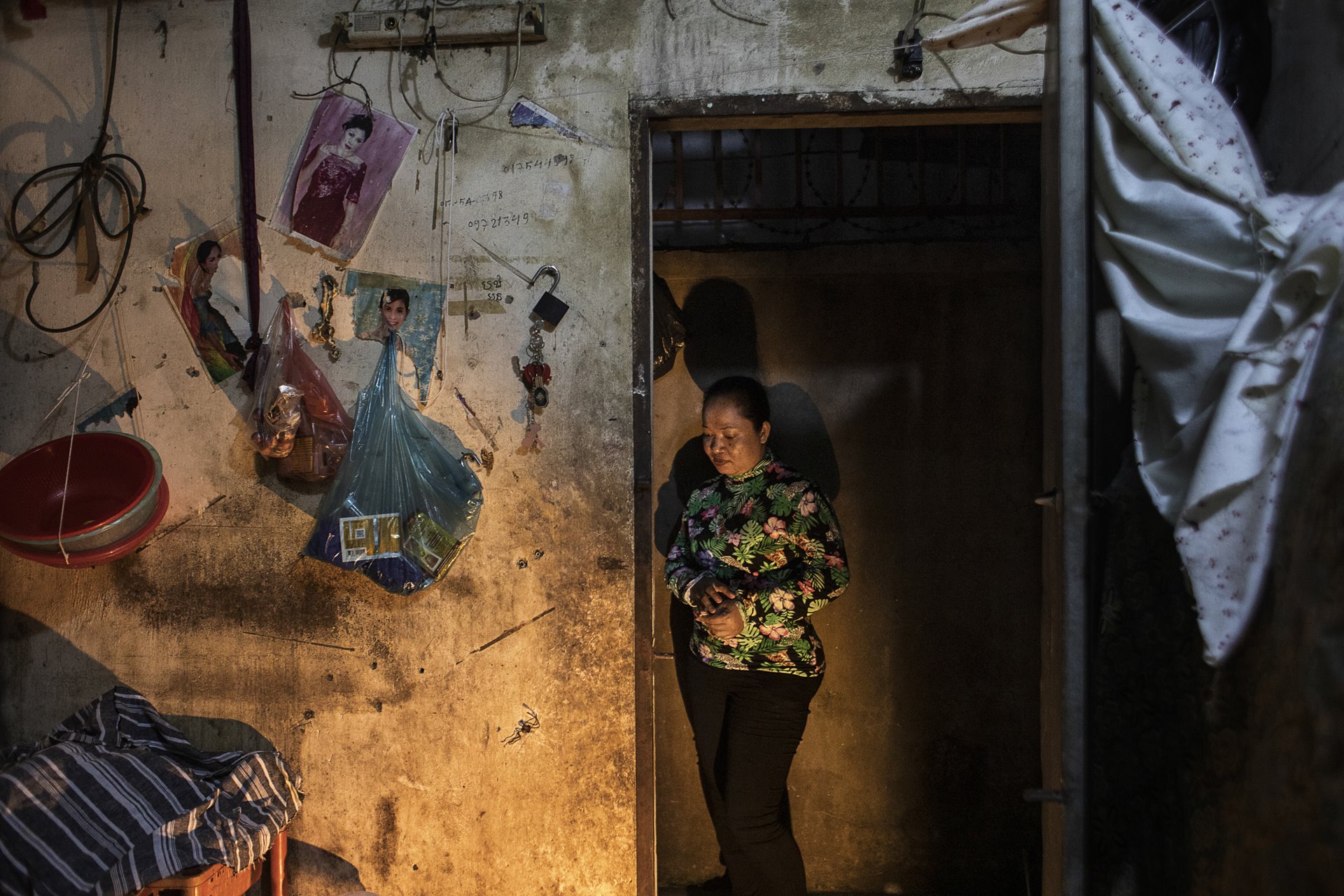Sopha (35) lives in a small, cubicle-like room with fellow factory workers in a busy neighborhood in Phnom Penh, Cambodia. She works overtime to send money home to her two biological children and one surrogate son, who are being raised by her mother in her home village. As a victim of gender-based violence who is divorced from her husband, Sopha turned to surrogacy to try to buy her husband out of the house they owned so she could cut ties. Instead she was arrested and taken to a military hospital where she gave birth to her surrogate son.
This series portrays Cambodian surrogate mothers who have been required to raise their surrogate children as their own ever since Cambodia began prosecuting surrogacy in 2016.
Surrogacy–the act of carrying and birthing a baby for another person or couple–was accepted practice in Cambodia until 2016, when the government started prosecuting surrogate mothers under already existing human trafficking laws. In 2018, a raid on a house in Phnom Penh led to the arrest and imprisonment of 32 women who were acting as surrogates to predominantly Chinese parents. Nearly all gave birth in confinement and, after sentencing by the Cambodian Supreme Court, all were obliged to raise the babies themselves or face prison terms.
Many of the women sought surrogacy arrangements with Chinese family planning agencies in order to help their families escape impoverishment and, in some instances, indebtedness from microfinance loans. In recent years, Cambodian households have become some of the most indebted on Earth and a major contributing factor has been the poorly regulated microfinancing sector. The rising burden of financial debt has resulted in an increase in child labor and families forced to sell their homes and land. For many of the women portrayed in this series, surrogacy represented a way out of debt, but now, with the court ruling against them, their lives have become more difficult. Despite financial, social, and personal challenges, many of the would-be surrogate mothers have formed a deep bond with their children even as they express sadness that their children will not be able to benefit from the economic advantages that their biological parents could provide.

